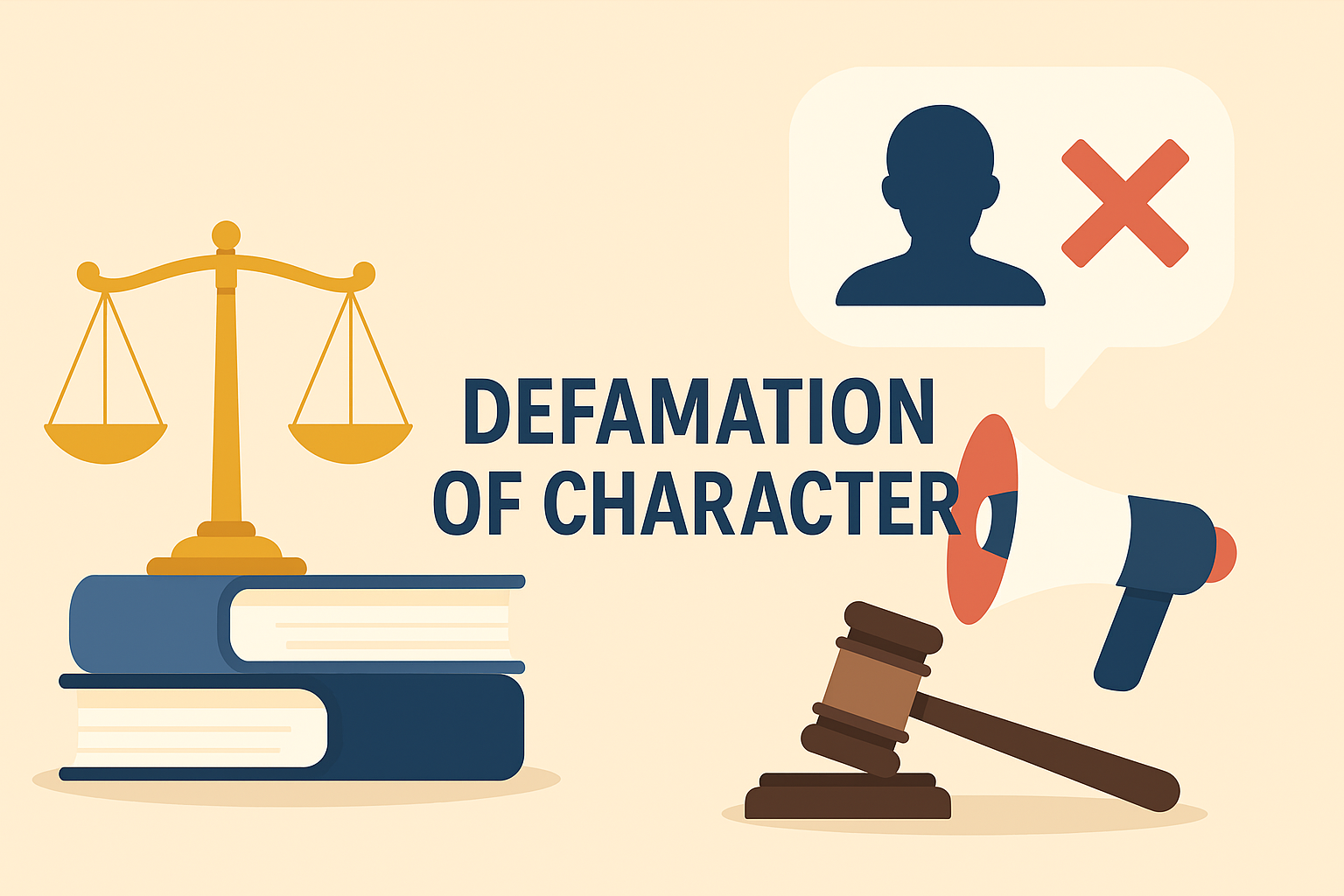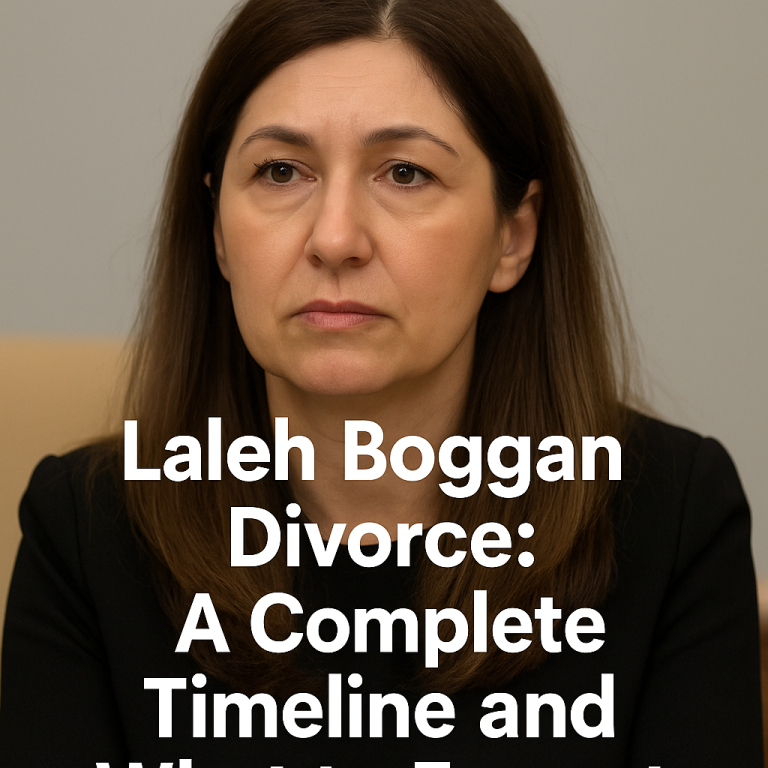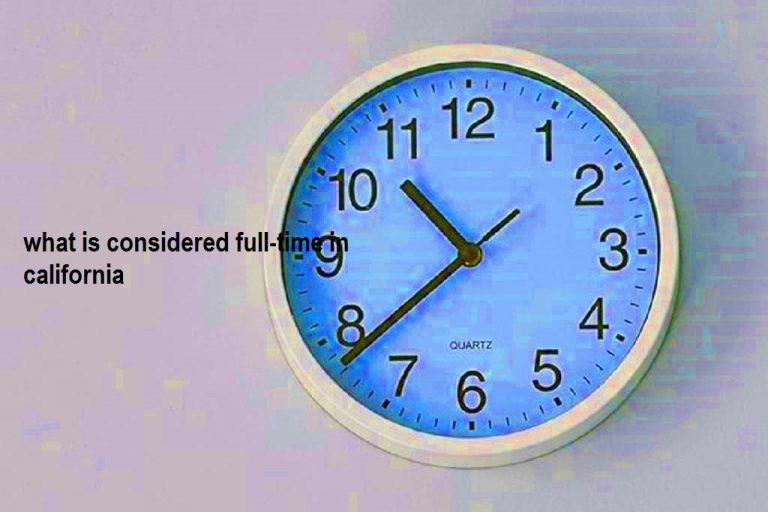Defamation of character refers to any false statement made publicly that harms a person’s reputation. These spoken or written statements can disrupt careers, destroy trust, and deeply wound someone’s social standing. In the digital age, the speed and reach of defamatory content have grown dramatically. A single social media post can go viral in minutes, causing irreversible damage.
This is why understanding defamation, its legal implications, and your rights is more crucial than ever. Whether you’re a victim seeking justice or a content creator aiming to stay on the right side of the law, this guide will help. We’ll explore what constitutes defamation, how to prove it, common defenses, and how to protect your name from reputational harm.
What Does Defamation of Character Really Mean?
Defamation of character happens when someone makes a false statement that injures your reputation. This damage can be personal, professional, or both. In legal terms, it’s divided into two categories. Libel refers to false statements in written or published form. This includes newspapers, blogs, or social media posts. Slander refers to verbal defamation, like false accusations spoken in public or during interviews. For a statement to qualify as defamation, it must appear factual and not simply an opinion. Courts dismiss opinions unless presented as truth. Defamation laws aim to protect people from serious reputational harm caused by lies and malicious intent.
Why Do People Sue for Defamation?
Reputation affects every part of life. When someone spreads lie, it can cost jobs, break relationships, and spark emotional trauma. People sue to reclaim their standing and stop the damage. Legal action isn’t always about money. Many plaintiffs want to set the record straight. Public apologies and retractions often mean more than compensation. Filing a lawsuit also deters others from repeating the lies. It sends a message that reputations must be respected. Suing for defamation helps regain control, especially when words spiral beyond the victim’s reach.
How Can You Tell If It’s Defamation or Just Free Speech?
Free speech lets people express ideas, even unpopular ones. However, it does not protect lies that harm others. The law draws a line based on content and intent. Courts examine several questions. Was the statement false? Did it appear as a fact? Did it reach a third party? Was it made carelessly or maliciously? If the answers point to negligence or deliberate harm, the statement may be defamation. Free speech ends where deliberate damage begins. Knowing the legal boundary helps balance rights and responsibilities.
What Must You Prove in a Defamation Case?
The legal burden of proof lies with the person claiming defamation. They must show:
- False statement: The statement must be untrue. A truthful but unflattering comment won’t qualify. If the information can be proven true, it becomes a valid defense. The court requires clear evidence that the statement was false.
- Published statement: Someone other than the subject must have seen or heard it. Private insults do not meet this standard. The communication must reach a third party, either through speech, writing, or digital platforms.
- Negligence or malice: The person didn’t fact-check or spread the lie knowingly. Negligence applies to private individuals. Public figures must show that the statement was made with “actual malice.”
- Harm: The subject suffered financially, emotionally, or socially. This harm can include job loss, public ridicule, or emotional distress. In some cases, loss of business opportunities or reputation in the community may also qualify.
If the plaintiff is a public figure, they must also prove “actual malice.” This means the defendant knew the statement was false or acted recklessly. This higher burden protects freedom of the press and public discourse, ensuring accountability only in serious abuses.
What Is the Difference Between Libel and Slander?
Understanding the difference between libel and slander is essential for anyone dealing with a defamation of character case. Both involve false statements that damage someone’s reputation, but they differ in form and legal handling.
Libel is written or published defamation. It includes content shared in newspapers, books, blogs, websites, or social media platforms. Because libel is documented and permanent, it often causes greater and longer-lasting harm. Courts may treat it more seriously and award higher damages.
Slander is spoken defamation. It includes false verbal statements made during conversations, speeches, or interviews. Since slander is temporary and harder to prove, the legal burden is often higher. Victims must usually demonstrate direct harm such as job loss or emotional distress.
Both forms meet the definition of defamation of character when the statements are false, communicated to others, and cause damage. Whether it’s libel or slander, the impact on your reputation can be severe. Knowing the difference between libel and slander helps you choose the right legal response and gather appropriate evidence.
Why Do Libel and Slander Matter Today?
Libel and slander remain vital legal concepts, especially in the digital era. Libel includes damaging content posted online—articles, tweets, or comments. Because it’s permanent and widely shared, its effects linger. One written lie can reach thousands, sometimes millions, and stay online forever.
Slander, though verbal and often fleeting, can go viral when recorded or shared. A single voice message, podcast clip, or public comment can spread quickly. Social media amplifies slander just as it does libel.
Both can lead to job loss, social backlash, or even legal issues. Once credibility is questioned, rebuilding takes time and effort. In the digital age, lies don’t fade. They echo and multiply. That’s why libel and slander laws still serve a critical role in maintaining truth and accountability.
Can Online Comments Be Defamation of Character?
Yes, social media posts and online comments can constitute defamation. Even anonymous posts can cause significant harm. Tweets, Facebook updates, or YouTube remarks are forms of publication. If they contain falsehoods that damage someone’s reputation, they meet the criteria for defamation.
The internet stores everything. Screenshots preserve statements long after deletion. Harm spreads rapidly when content is shared or reposted. Because of this permanence and reach, courts take online defamation seriously. Even private groups or closed forums are not exempt if harm occurs.
Anonymity does not protect users from consequences. Courts can issue subpoenas to uncover identities. Individuals who defame online face the same legal risks as traditional defamers. The digital space is not a lawless zone.
What Defenses Can Stop a Defamation Lawsuit?
Defamation claims can fail if the defendant has a valid defense. Truth is the strongest one. If the statement is true, it is not defamatory, no matter how damaging. Facts always trump accusations in court.
Opinion is another key defense. If someone shares a clearly stated opinion rather than claiming something as fact, they may be protected. For example, saying “I think the product is terrible” is not the same as saying “The company lies about safety.”
Consent also protects defendants. If the subject agreed to share the statement, they can’t later sue for harm caused. Written or verbal consent is often considered binding.
Privilege applies to protected contexts. Testimonies in court or statements during legislative sessions are often immune. Even when the statements are harsh, the context shields them from defamation claims.
Each of these defenses has limits. Context matters. Courts look closely at how the statement was made and received.
What Remedies Can Victims Seek in Court?
Victims of defamation can pursue different legal remedies. These remedies serve to compensate for damage and stop further harm. One remedy is compensatory damages. These cover emotional distress, lost income, and damaged business reputation. Victims may also seek punitive damages. Courts award these when the defamer acted with deliberate malice.
Injunctions are another remedy. These are court orders that stop further spread of the defamatory statement. A judge might require the defendant to delete posts, issue a public apology, or refrain from repeating the lie.
Sometimes, victims request retractions. These are public statements acknowledging that the original claim was false. Retractions help restore reputation, especially in professional or high-profile cases. The right combination of remedies depends on the case’s scope and impact.
How Can You Protect Yourself from Defaming Someone?
Think carefully before making public statements. Avoid posting unverified claims. Always check facts before speaking or sharing. Adding “in my opinion” may help, but only if the comment clearly appears subjective. Avoid repeating rumors, even from credible sources.
Use neutral and respectful language, especially when discussing individuals. If criticism is necessary, focus on conduct, not character. When possible, rely on verified documents and cite sources. If you make a mistake, apologize publicly and promptly.
Taking these steps helps avoid legal issues. They also show professional integrity and respect for others’ reputations.
What Responsibilities Do Platforms Have in Defamation?
Platforms like Facebook, Twitter, or Reddit host user-generated content. While they are not usually liable for what users post, they must act on reported defamation. Most platforms have terms of service that ban defamatory content. Violating these rules can lead to account suspension or post removal.
Victims can report posts using in-platform tools. If this fails, they may pursue legal action. Platforms can be subpoenaed to reveal user identities in serious cases. Cooperation from social media companies helps enforce defamation laws.
Some platforms move faster than others. Victims should monitor ongoing activity and document new content. Reporting issues through legal channels often yields better results than relying on community moderation alone.
Conclusion
Defamation of character remains a serious concern in both public and digital spaces. False statements can spread quickly and damage lives permanently. Reputations built over decades can collapse in hours due to lies. However, defamation laws exist to protect individuals from such harm. They offer pathways for justice and recovery.
By understanding what constitutes defamation, how to prove it, and the available legal remedies, individuals can defend themselves more effectively. Equally important is the responsibility we all carry when speaking or sharing information. Truth matters. Integrity matters. Protecting your reputation begins with knowledge and vigilance. In a world driven by content, words are powerful—use them wisely.
Frequently Asked Questions About Defamation of Character
What are examples of defamation of character?
Defamation of character occurs when someone communicates a false statement as fact that harms another person’s reputation. An example of libel could be a news article falsely claiming someone committed fraud. An example of slander might involve someone spreading a false rumor at work that a colleague was fired for theft. These types of statements must be proven false and shown to have caused real harm such as job loss, mental distress, or public humiliation.
Can I sue for defamation on social media?
Yes, you can sue for defamation if a false statement on social media causes you reputational harm. Posts on platforms like Facebook, X (formerly Twitter), TikTok, or Reddit are considered published material. If a statement is false, appears factual, and leads to loss or emotional harm, legal grounds for a lawsuit exist. Courts often accept screenshots, shares, and comment trails as admissible evidence.
Is it still defamation if no one believes the lie?
Yes. Defamation doesn’t require that people believe the lie—only that the lie was seen or heard and had the potential to cause harm. Even if most people disregard the statement, damage may still occur through exposure, emotional distress, or career impact. Courts consider intent, reach, and resulting effects when evaluating claims.
How long do I have to file a defamation lawsuit?
The statute of limitations for defamation cases usually ranges from one to two years, depending on the jurisdiction. The clock generally starts from the date the statement was published or spoken. Delaying action may weaken your case, as evidence can be lost and memories fade. It’s vital to consult a legal expert quickly to understand deadlines specific to your region.
Can I be sued for posting a bad review?
You can express dissatisfaction in a review, but including false factual claims can lead to a defamation lawsuit. Saying “I hated the food” is an opinion. Saying “They serve expired meat” without evidence is a potentially defamatory statement. Businesses have successfully sued reviewers who made provably false accusations that caused economic damage.




